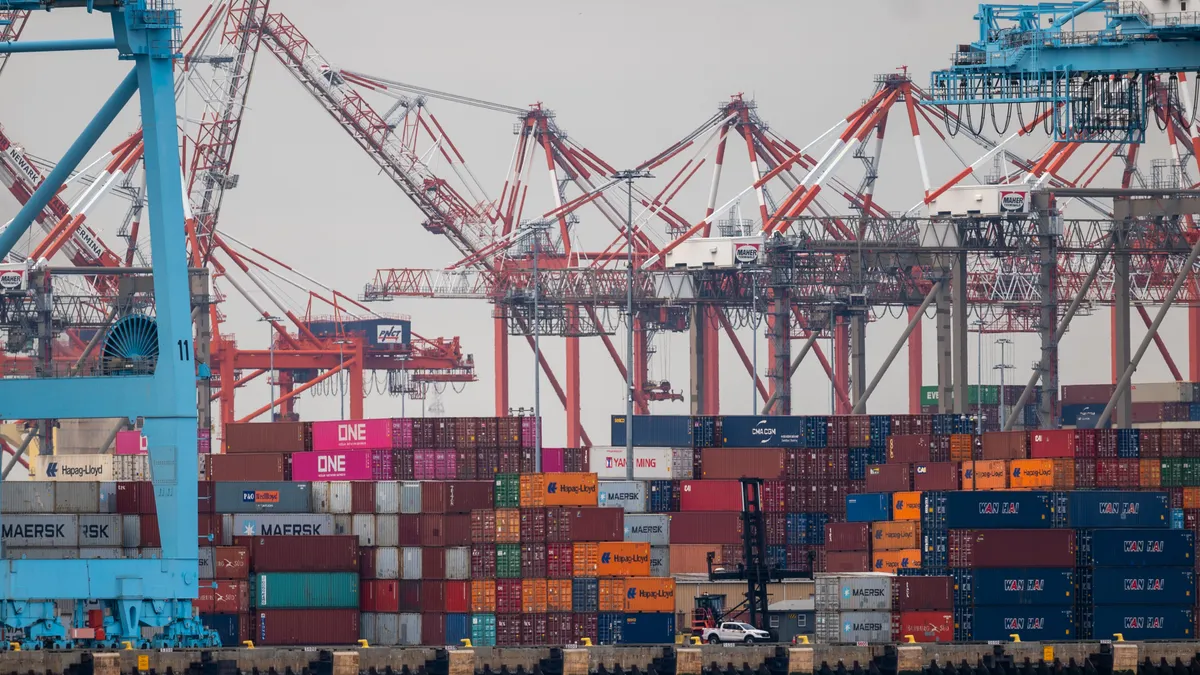Dive Brief:
- Loadsmart announced it acquired freight technology platforms Kamion and Opendock, with the goal of boosting transparency between carriers and shippers while reducing reducing empty miles, according to a press release from Nov. 5.
- Kamion is a trucking management system that includes dispatching, driver management, general accounting and integration with ELD providers. Opendock is a warehouse scheduling software, which assists in appointment scheduling to cut down on truck wait times at the dock and reducing inefficient backhauls, according to the press release.
- "Our goal as a company is really to streamline the flow of goods and really connecting and building the pipelines that connects both shippers, brokers and carriers," said Jim Nicholson, vice president of operations.
Dive Insight:
Loadsmart's acquisitions of Kamion and Opendock aim to boost transparency and reduce empty miles, a longstanding issue that drags on carrier efficiency and revenue. In 2017, 26% of all miles traveled generated no revenue, growing to 33% in 2019, according to an analysis from the American Transportation Research Institute.
Kamion works to reduce empty miles by digitally connecting shippers and brokers with carriers, thereby matching loads and capacity.
Opendock's platform matches capacity coming into and leaving from a warehouse, which can cut down on deadheading. It also adjusts appointments in real-time. For example, if a driver’s estimated time of arrival changes while en route, Opendock technology automatically reschedules the appointment — another way to reduce empty miles and loading dock wait times.
The task of reducing wait times "has become really a plague and thorn in the industry," Nicholson said.
These acquisitions aren't the first move from Loadsmart in addressing empty miles. In September, the technology company partnered with The Home Depot to launch Flatbed Messenger. The marketplace uses a truck's location, price and destination to match it to a shipment, helping to reduce deadheading.
Loadsmart's various initiatives have a common theme: transparency between shippers, carriers and their third-party partners to cut down on inefficiencies.
"We're really seeing some acceleration on the carrier side to migrate to cloud-based systems," Nicholson said.
















